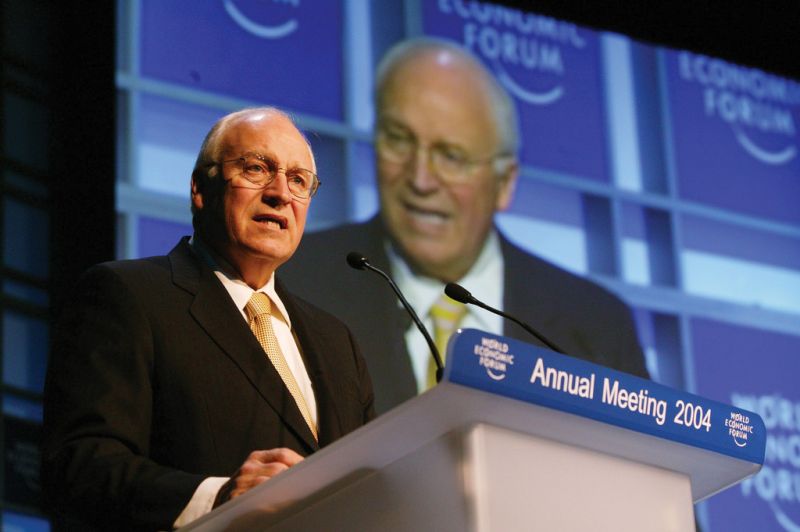
Flickr/<a href="http://www.flickr.com/photos/worldeconomicforum/346731823/" target="blank">World Economic Forum</a>.
Andrew Sullivan is making a lot of Dick Cheney’s “admission,” in an interview with ABC’s Jonathan Karl, that he was a “big supporter of waterboarding.” It’s not news, of course, that Cheney was involved with the waterboarding program—anyone who has been paying attention for the past few years knows that much of the impetus for the Bush administration’s torture and detention regime came out of Cheney’s office. But Sullivan argues that the admission of involvement, however off-handed, means that Attorney General Eric Holder is legally required to prosecute:
[T]he attorney general of the United States is legally obliged to prosecute someone who has openly admitted such a war crime or be in violation of the Geneva Conventions and the UN Convention on Torture. For Eric Holder to ignore this duty subjects him too to prosecution. If the US government fails to enforce the provision against torture, the UN or a foreign court can initiate an investigation and prosecution…. Cheney himself just set in motion a chain of events that the civilized world must see to its conclusion or cease to be the civilized world. For such a high official to escape the clear letter of these treaties and conventions, and to openly brag of it, renders such treaties and conventions meaningless.
Sadly, the treaties and conventions Sullivan holds so dear have already been rendered meaningless. The consensus among members of the political and media establishment seems to be that punishing anyone who oredered or sanctioned torture is absolutely unacceptable. Many news organizations can’t even bring themselves to call waterboarding torture. Digby cites this New York Times profile of Holder as evidence that “Dick Cheney could go on television and admit to personally torturing KSM on the rack and nothing would be done.” That sounds about right. Actually, given how blithely everyone responded to Cheney’s waterboarding admission, and given how many people seem to want to avoid trying KSM, I strongly suspect an admission of personal, direct participation in torture would redound to Cheney’s political benefit.









